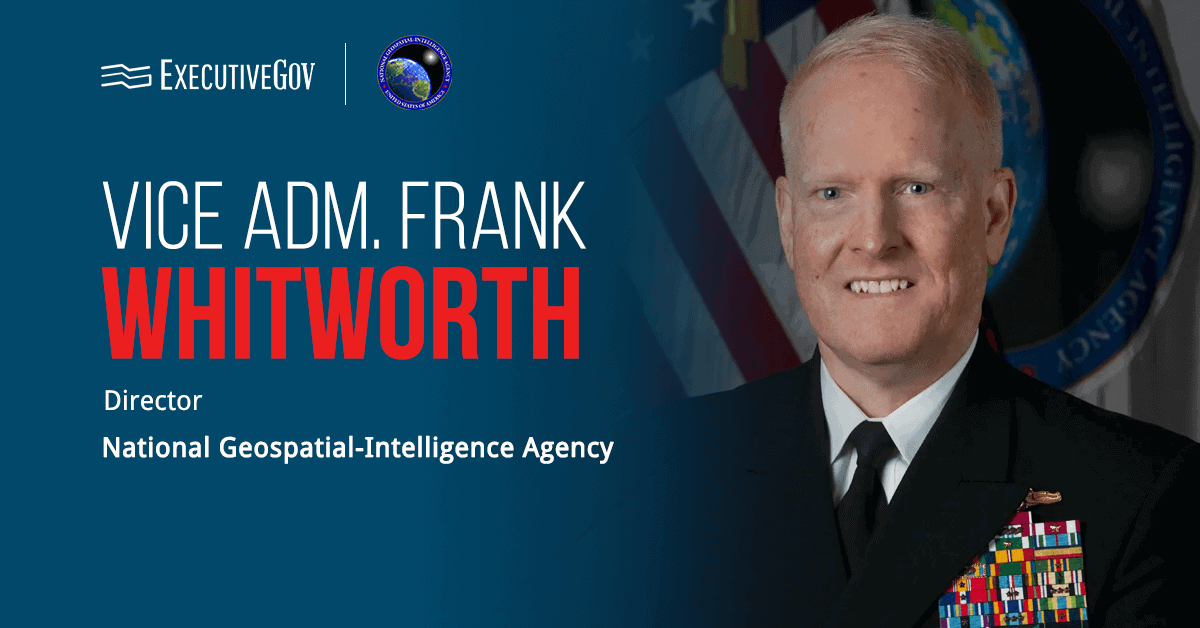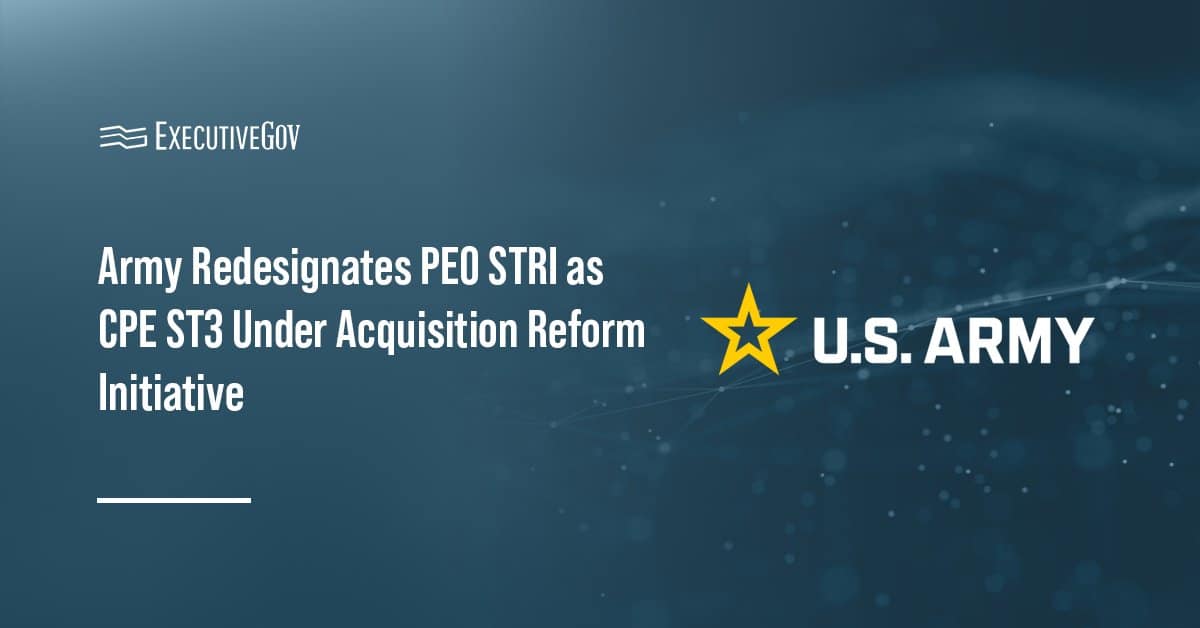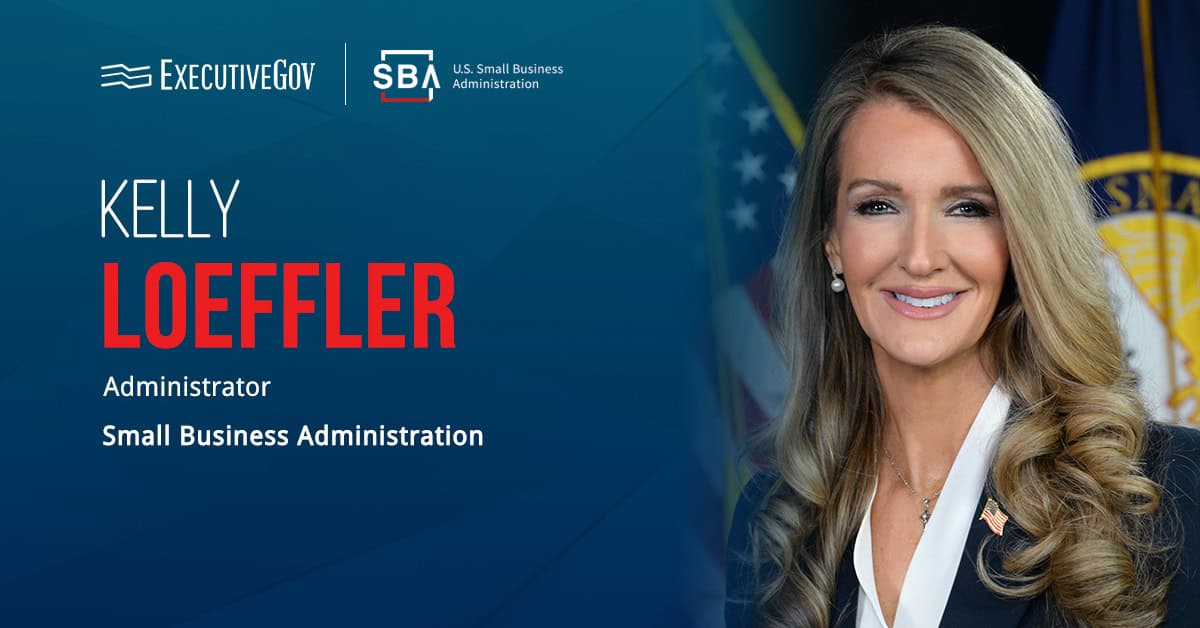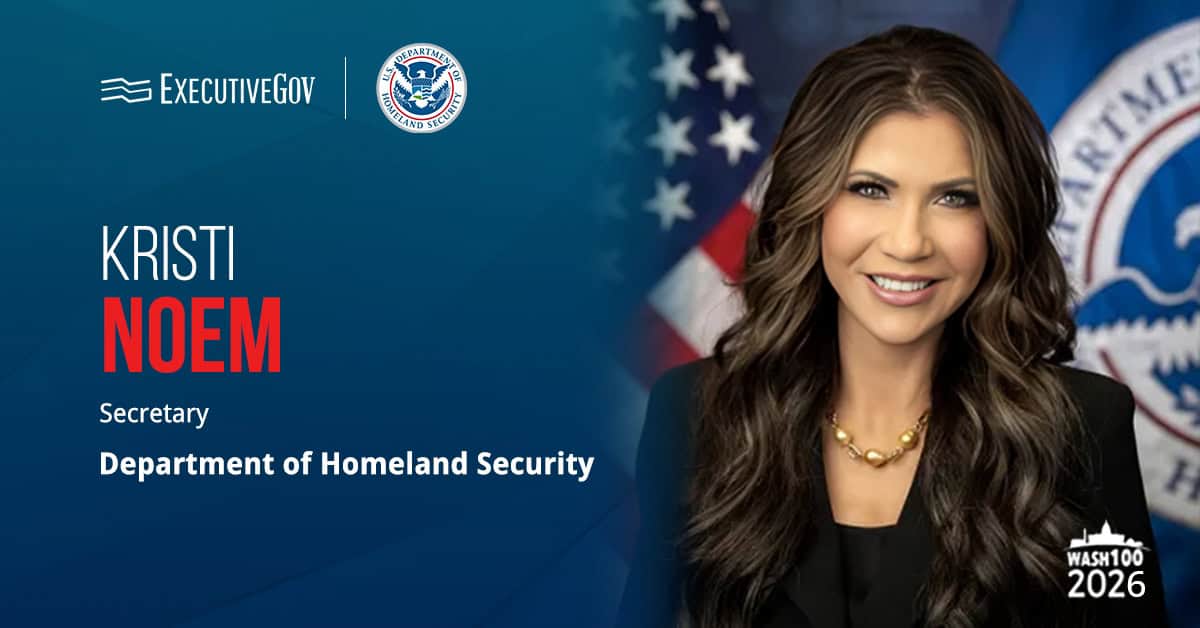The National Geospatial-Intelligence Agency is developing artificial intelligence standards to handle an expected surge in space-based sensor data, Federal News Network reported Friday.
NGA Director Vice Adm. Frank Whitworth, a four-time Wash100 Award recipient, spoke Thursday at the Intelligence and National Security Summit in National Harbor, Maryland, where he described 2025 as “the year of AI” for NGA. He pointed to the rapid increase in data expected from government and commercial satellite systems and emphasized that AI will be needed to keep pace.
“While I won’t detail exactly what the percent increase in terabytes from space will be, it is substantial over the next decade,” Whitworth said. “We don’t want all of that data, all those images, all those files – and they’re very dense files, by the way – we don’t want them falling on a cutting room floor.”

Potomac Officers Club’s 2025 Intel Summit unites top intelligence leaders, policymakers, and industry innovators to address the evolving challenges and opportunities shaping the future of national security. Register now to be part of this premier intelligence community event, scheduled for Oct. 2. VADM Whitworth will be keynoting the event!
Table of Contents
New Roles and Standards for AI
NGA has created new positions to lead its AI work, including directors for AI mission, AI programs and AI standards. Whitworth said the AI standards lead will ensure that AI development aligns with U.S. values and rules of engagement.
The agency also launched the Accreditation of GEOINT AI Models to provide a consistent evaluation and risk management framework for AI systems. “We just need to make sure that there are no hobby shops going on here,” Whitworth said, stressing the need for reliable training data, tested processes and adherence to principles such as the laws of armed conflict.
At the same time, Whitworth cautioned against turning the standards work into a slow, centralized approval process. “We do not want to move in the direction of an [authority-to-operate] process, where everyone sits and waits,” he said. Instead, NGA wants to enable a self-governing approach in which combatant commands and services are trained to accredit models themselves.
Expanding AI Use Across NGA
NGA has been using AI for years through programs such as Project Maven, which applies machine learning to imagery and data to identify military targets. Whitworth said the agency is expanding Maven’s role to other mission areas.
“We want to ensure that it brings goodness to the rest of what we do, like warning, like safety of navigation,” he said.
NGA has also stood up a program executive office for advanced analytics, which Whitworth said is beginning to deliver results.





